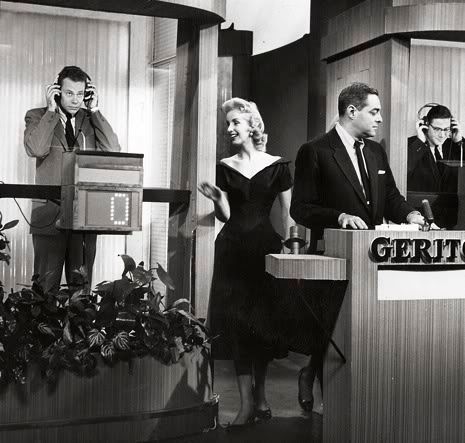
Wednesday, January 21, 2009
dancing madly backwards

Tuesday, January 20, 2009
not even for a day

And so, eight years later, I spent this inauguration cloistered in a cubicle, surrounded by colleagues who dont appear to have unhooked their Facebook drips for the occasion, struggling with words for what this all means. Every new era in American politics begins with the perception of a righteous cleansing, a throwing off of the violated language of the previous dominion. I feel the urge to resist this just slightly. I'm concerned, for instance, with the idea of the call to sacrifice, which sounds noble enough, and certainly harmonized with the welcome austerity of yesterday's speech. I am one of the majority of Americans recently polled (and I can't for the life of me find the poll) whose income is only enough to cover rent and basic expenses. We've been sacrificing. It's time for Lockheed and Bank of America to sacrifice.
But I digress. It's an exciting time. For once, I feel like I actually want to sit down and read the newspaper, rather than turning to it with a feeling of dread. If anything, Obama's ascendance brings about the self-immolation of outmoded bigots, long overdue. Michelle Malkin and her kin are welcome to begin bashing their heads against the wall whenever they are ready.
Friday, January 16, 2009
tentatively a convenience

Monday, January 12, 2009
justice, what a hassle

While it remains to be seen if Erik "Money Folder" Holder will sentence Donald Rumsfeld to death, it does appear that Mr. Fried is protesting a bit too much. He is not the first to trot out the shibboleth that punishing those responsible for the Bush administration's various humiliations of the law would do little more than establish a pattern of retribution against outgoing administrations. Leave aside the obvious point that an exiting Obama team guilty of such egregious assaults on the law would be prosecuted on day one (rightfully, albeit not without sanctimony or a moment's hesitation from the GOP and media). The easily elided point here is that we would need not fear this pattern, were an independent Justice department in existence and already in pursuit of those at the heart of the policies. Those perpetrators would have been put on trial in late '06, rather than the rotten fruit they bore.
Curiously, Fried goes on to imagine the horror of an American populace needlessly exposed to a concept he terms a "trial." Protracted, he claims this would be. He threatens our senses with something called a "stupefying spectacle". Phony legal scholars, merely existing in the hypothetical at present, would appear on TV to bear false witness. Our otherwise upstanding mass media would be distracted from their diligent work parsing the challenges of universal healthcare by something truly alien and strange: a courtroom drama!
Fried is welcome to whichever logical platitude allows him to consider our society sane. He just so happens to be complicit in the Bush administration's clever construct (at work as well in its pretzelly Gitmo endgame, its Katrina overflights, its de-ownership of the Ownership Society, et...alas...cetera) in which their total abdication of responsibility both enables their disastrous policies and precludes their punitive rejection. Also, about that comparison between Stalin and Rumsfeld? Just a small matter of punctuation.
Tuesday, January 6, 2009
old acquaintance

However, I have to temper my enthusiasm a bit, as I’ve seen now in my 15 years of fandom a series of short-sighted gimmicks come and go that fail to bring any lasting status boost to the game (Glow-pucks, Alexandre Daigle, The Florida Panthers, OT shoot-outs, I'm googling at all of you). Watching Chris Chelios ride the bench with the Hancock Tower in the background was a thrill, but it pales in comparison to the heights of a Game 7 in the finals, or any Game 7, for that matter. When you strip away all of the pomp, this was just a regular season game. It did offer some beautiful moments (Datsyuk’s flight to the net, Ben Eager’s retro celebration), but it lacked the passion, suspense, sacrifice, and strategy which are all on display in any playoff game. This is not to mention NBC’s glaring omission of any analysis that would have brought these things to the average viewer’s attention.
If it means increased ratings, ticket and merch sales, by all means continue the Winter Classic, but it wont go too far to increase people’s awareness of what makes the game truly great like more, better playoff coverage would. This is not to say though, that more of these games shouldn't be played whenever possible if teams and venues are able to put them together. Surely, venues exist in cold-weather, hockey-rabid cities (ie, not NHL cities) that can offer a more suitable, even ideal viewing experience compared to Wrigley. Indeed, the most compelling note sounding through the latest Classic was that the notion of the carpet-concoursed luxury arena-as-optimal-viewing-experience had been delegitimized just a tad. More outdoor games would be more than just a revenue generator, restoring a legitmacy to the outdoor game as a preternatural part of hockey and beyond that of a serial gimmick.